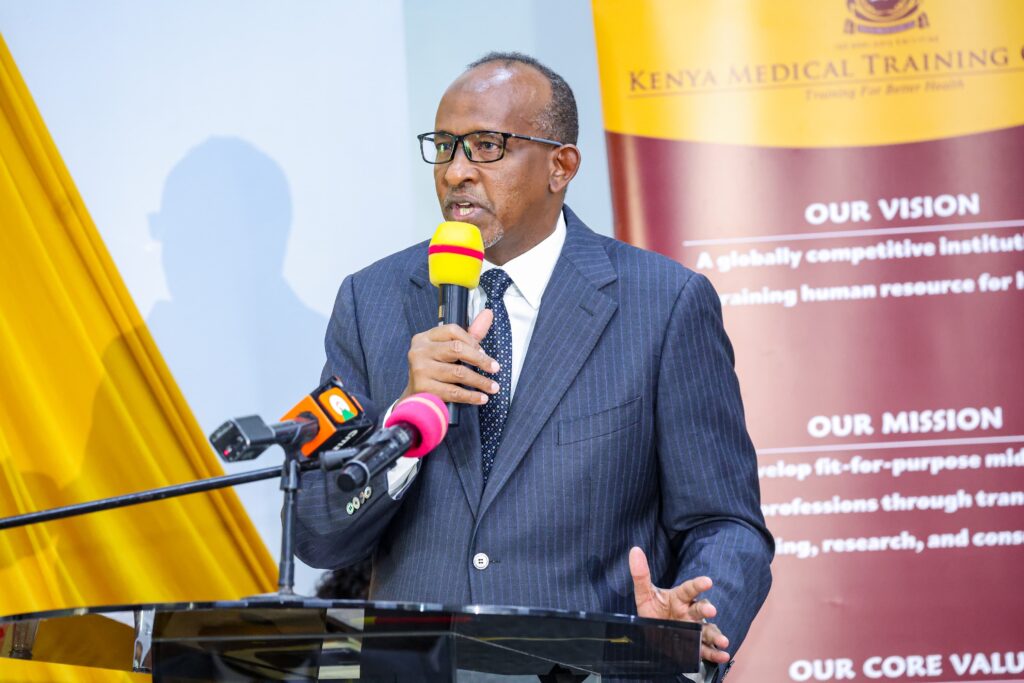Health Cabinet Secretary has reiterated the government’s unwavering support for the Kenya Medical Training College (KMTC) while cautioning against the unchecked proliferation of health-related courses in various institutions across the country.
Speaking during the official opening of the 8th Biennial KMTC Scientific Conference held at the institution’s headquarters in Nairobi, he emphasized that KMTC must continue to serve as a centre of excellence. He noted that the college has a vital role in shaping the health workforce and must focus on producing well-trained, service-ready professionals who meet the demands of the public health system.
He made it clear that the Ministry will not allow any institution to compromise quality in the name of expanding access. He reiterated that all training programmes must be aligned with the evolving public health needs of the country and that no institution should offer credentials without ensuring competence.
The conference brought together stakeholders from the health sector, academia, and research institutions. Themed “Advancing Equity in a Rapidly Changing Environment,” it provided a platform to discuss innovations and strategies aimed at enhancing health training and service delivery. The gathering is part of Kenya’s broader efforts to strengthen the health system and achieve Universal Health Coverage (UHC).
During his address, the Cabinet Secretary highlighted that this was his first official visit to KMTC since taking office. He used the opportunity to hold a consultative meeting with the college’s Board and senior management, where he stressed the importance of accountability, transparency, and integrity in training future healthcare providers.
He further urged the institution’s leadership to conduct regular reviews of their training programmes to ensure they reflect the country’s national health priorities. He called for a strong emphasis on continuous quality improvement and adaptability in a sector that is constantly changing due to technological advancements and emerging health threats.
In a move aimed at strengthening the practical training component for students, the Cabinet Secretary also flagged off five double cabin vehicles for distribution to five KMTC campuses. These vehicles will play a critical role in facilitating student access to clinical training sites. They are also expected to enhance supervision during fieldwork and support the delivery of health services in communities as part of the institution’s community-based training approach.
The visit demonstrated the Ministry’s commitment to ensuring that institutions like KMTC remain central to the development of a competent and responsive health workforce. The Cabinet Secretary reaffirmed the government’s intention to support KMTC in scaling its impact, provided that the quality of education and alignment with national health goals remain uncompromised.
The event also reflected the institution’s efforts to keep pace with changing healthcare environments through research, innovation, and stakeholder collaboration. Participants at the conference shared insights on new training methodologies, technology integration, and policy directions that can help close equity gaps in healthcare service delivery.
As Kenya continues to strengthen its health systems, the Ministry’s position signals a clear intent to regulate health training in a manner that safeguards both the public and the integrity of the profession. Institutions offering health-related courses will be expected to meet strict standards, ensuring that graduates are not only qualified on paper but capable of delivering quality care across the country.

